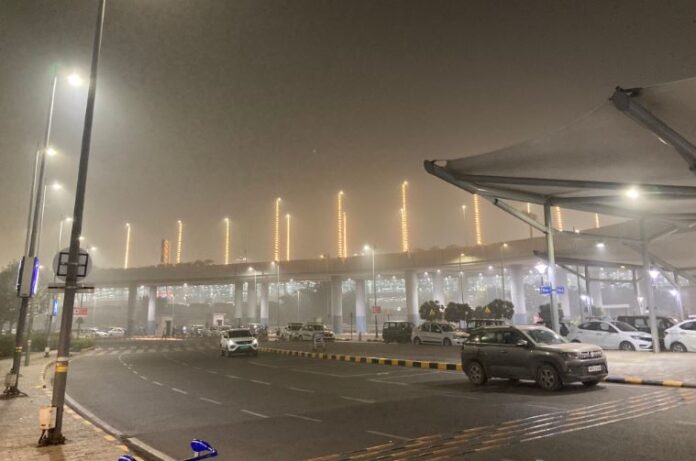Delhi continues to grapple with its hazardous air pollution levels, cementing its position as the most polluted city globally. According to the latest data from aqi.in, the capital recorded an Air Quality Index (AQI) of 978 as of 12:30 PM on November 18. This alarming figure equates to breathing in the toxic equivalent of smoking 49.02 cigarettes daily.
Worsening Air Quality in Northern India
The deteriorating air quality in Delhi is part of a broader trend affecting several northern states. The situation has been exacerbated by seasonal factors, including firecracker usage during Diwali and stubble burning in neighboring regions.
Haryana, Delhi’s neighbor, follows closely with an AQI of 631, equivalent to smoking 33.25 cigarettes daily. Uttar Pradesh reported an AQI of 273, likened to inhaling 10.16 cigarettes daily, while Punjab’s AQI of 233 translates to 8.34 cigarettes per day.
Supreme Court Intervenes
The Supreme Court has taken note of the alarming pollution levels, criticizing the Delhi government for its delayed enforcement of Stage 4 of the Graded Response Action Plan (GRAP). The court emphasized that no relaxation of preventive measures would be allowed even if the AQI dips below 450.
Impact on Daily Life
In response to the worsening conditions, schools in Delhi, barring grades 10 and 12, have transitioned to online classes. Despite preventive measures, residents continue to face severe health risks, including respiratory issues and long-term cardiovascular problems.
States with Better Air Quality
While northern states battle severe pollution, regions like Ladakh and Arunachal Pradesh offer a stark contrast. Ladakh boasts pristine air quality, equivalent to smoking zero cigarettes daily. Arunachal Pradesh, with an AQI of 13, corresponds to smoking just 0.18 cigarettes per day, showcasing some of the cleanest air in the nation.
Broader Implications and Steps Forward
The rising pollution levels highlight the urgent need for collective action. From stricter enforcement of emission norms to promoting sustainable practices, experts stress that immediate interventions are essential to protect public health and mitigate long-term environmental damage.



